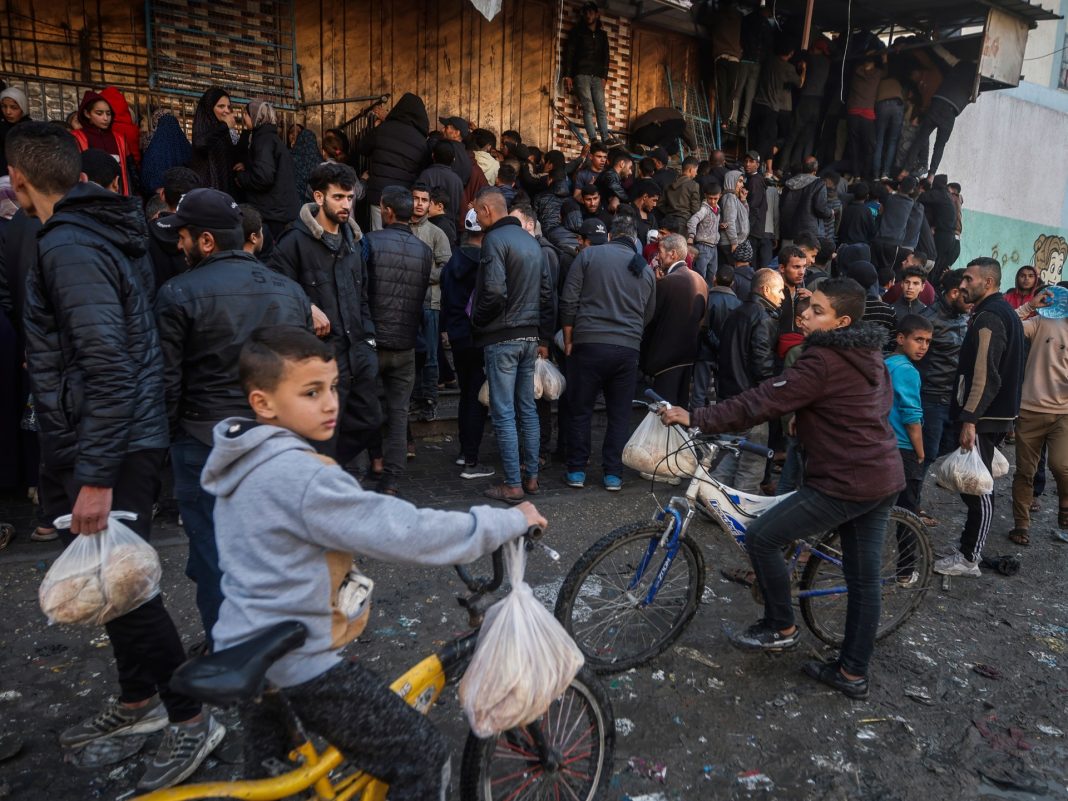In the narrow crevices between the tents that crowd nearly every inch of the southernmost Gazan city of Rafah, Palestinians cling to life amid the grinding Israeli ground offensive.
A barefoot boy wears a pot on his head and beams a smile. A child lugs a jerry can half his size full of water. Men sit at half-empty tables selling canned goods. A tapestry of laundry hangs from every line.
The world’s gaze is on Rafah, the once-sleepy town along the Egyptian border deemed a “safe zone” for displaced civilians to flee to, but now likely Israel’s next focus in its ground offensive on the besieged strip.
Rafah has swelled in size in recent weeks. Hundreds of thousands of displaced Palestinians have splayed out across the city in tents or at the homes of friends or relatives.
The estimated 1.5 million people sheltering there – more than half of Gaza’s population – have nowhere to flee in the face of Israel’s offensive that has levelled large swaths of the urban landscape in the rest of the territory and killed more than 29,000 people.
United Nations officials warn that an attack on Rafah will be catastrophic, with more than 600,000 children in the path of an assault. A move on the town and surrounding area could also cause the collapse of the humanitarian aid system struggling to keep Gaza’s population alive. Israel’s Western allies have also expressed concern.
However, Israel says it must take Rafah to ensure the destruction of Hamas and the freeing of Israeli hostages still held by them.
Food in Rafah, like elsewhere in the Gaza Strip, is scarce. Throngs of people crowd around a bakery, hoping for a few pitas to feed their families. Others bake their own in mud stoves with whatever flour they could get. One child, seated on an older child’s shoulders, revelled in the first bite of the fluffy bread.
The streets with no tents are packed with crowds of Palestinians hustling to sustain their families.
The mundane drumbeat of life continues in some places. A boy gets a haircut. A girl dons an oversized sheer pink floral dress. Women and a child avoid a large puddle near a mass of tents.
And in a surreal snapshot of joy, children spin around on a makeshift, manually operated Ferris wheel, turning and turning as the war – now in its fifth month – rolls on.







